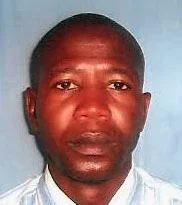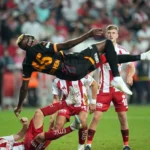Afolabi Gambari
Reactions have trailed the “Man of the Year 2024” honour bestowed on President Bola Tinubu by a reputable national newspaper on January 1. The reactions continue even up till this moment. It is as much for the fact that the newspaper is also reputed to sometimes thrive on controversy as it is for the individual that the award was bestowed on.
According to the newspaper, the awardee’s “toughness” and “resilience” had scooped the coveted prize for the recipient and it said “on a balance of scales and given all considerations” it was “hard” to find “anyone” that could fairly challenge him for the award.
The above clearly suggested that the awardee had achieved something akin to an invention that would be beneficial to the entire people of Nigeria and for a long time to come. So, since invention is always a result of exceptional creativity, it does not happen all the time. Some experts would even contend that an invention happens within a period of 50 years.
What could President Tinubu have, therefore, invented to warrant that no challenger came close to him? Perhaps, the answer to this question also lies in the newspaper’s assertion that it was only “hard” to find his challenger but it could not have been impossible if it spread his search net a little wider.
The newspaper said the award winner was “determined and unfazed in the face of mounting challenges and attendant hardships”, saying also that he had marched on with his “audacious reforms to change Nigeria”.
To be fair, the president was audacious to have announced the removal of petrol subsidy from the very first day in office. But it should also be fair to submit that the audacity was neither necessary nor logical. Nor was the audacity even wise or in tune with natural justice. For the confusion that the audacity threw the nation into has yet to abate, some 20 months after. No less has the audacity also put the administration to the sword, resulting in a poor image for the government both at home and around the world. If it was truly audacity, as the newspaper claimed, how come that desperate solutions were sought for the confusion created by the audacity and the solutions could not come beyond provision of palliatives that were as meagre as they were for the most part a short-term measure? An audacious leader who took an audacious decision that suddenly stripped millions of Nigerians of their means of livelihood – with the dire results almost instantaneous – ought to also proffer a definite date when the deprivation would abate, if not altogether cease. How come, then, that nearly two years after, the audacious man is still telling Nigerians “Your suffering will end soon” with no definite date attached?
If the president was “determined and unfazed in the face of mounting challenges and attendant hardships”, well, it was not because he had a clear idea of when the seeds of the pain, he planted would begin to yield soothing fruits. Rather, it is mainly because he has gone clueless and is not humble to admit the cluelessness. His desperation could also be gleaned from gleefully saying “over $20bn has been saved on petrol subsidy removal” in one breath and sending a frantic letter to the National Assembly to approve the administration’s quest for a $2bn foreign loan in another breath.
According to the newspaper, the president proved to be a daring and gritty leader who is driven more by convictions of his choices than pandering to sheer sentiments or the crowd “from merely providing leadership to introducing very unpopular but promising reforms”. But while there is no fuss whatsoever about the unpopular reforms, it fell short of listing the reforms that look promising. Curiously, the newspaper blamed the consequences of the subsidy removal by Tinubu on the immediate past administration of Muhammadu Buhari, although it had already credited Tinubu for being audacious. It would have been thought that being audacious entails being ready to face any challenges, especially as challenges one participated actively in creating. But I digress.
The award winner was credited by the newspaper to have floated the naira “to enable it to find its level against other currencies, particularly against the dollar and by extension, engender the stability of the market”. It fell short of stating the details of how this “daring policy” has panned out. Thankfully, however, it did not list revving back to life many moribund industries and hundreds of thousands of fresh employment as the direct result of the policy, lest it would be charged to provide a forensic proof.
The newspaper also credited Tinubu for insisting “no going back” on tax reform bills he sent to the National Assembly as a response to a section of the country that has expressed foreboding over the bills. But could the newspaper have also projected to 2027 and beyond to conclude that the “no going back” would stay the course, just as the local government autonomy credited to him? Hardly, considering “other things”.
Tinubu’s “place and roles in global politics and governance” are yet to be defined, let alone concretized, contrary to what the newspaper posited. If anything, Tinubu has so far appeared to be ill-advised that his charity must begin abroad, apparently in desperation to become a global player. Candidly, he has no grip over ECOWAS other than whatever privilege is accorded Nigeria as a founding member of the sub-regional body. Therefore, if he recently promised the German President, Frank-Walter Steinmeier, that ECOWAS would bring the tear-away trio of Burkina Faso, Mali and Niger Republic back into the fold, it is more like posing as superman and expecting the German leader not to know better.
Remarkably, however, the newspaper was honest and realistic that Tinubu’s approach to reforms was devoid of rigor, consultation and inclusion while his interventions, perfunctory, to say the least, could have been better paced and executed. Did this last line not say everything about where the man of the year award should actually go or not go?







